Home > Florida > Florida Technology > Florida Welcomes a New Era in Agricultural Advancements
Florida Welcomes a New Era in Agricultural Advancements
In partnership with: Florida Department of Agriculture and Consumer Services
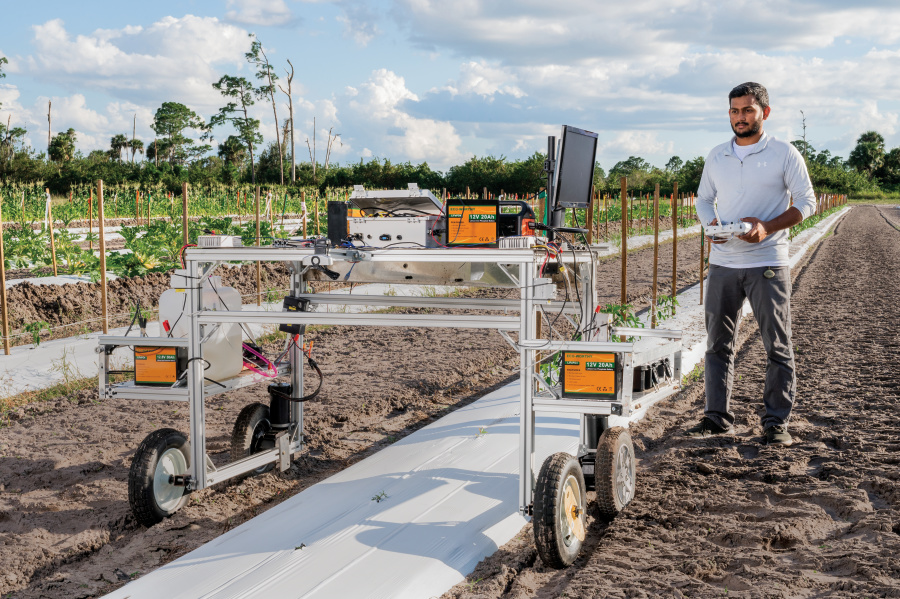
Like most other businesses, farmers are working to be more efficient and sustainable. With new technologies available, they’re making progress to ensure better yields, discover more cost-effective methods and gain a better understanding of environmental impact.
Florida Ag Tech Advancing in AI
Analyzing crops in the field once took several weeks, involved lots of labor and wasn’t always accurate. Today, that work can now be completed with the quick flight of an unmanned aerial vehicle (UAV) and the use of artificial intelligence (AI) to interpret the data. As the UAV flies over the crop, every second it snaps images that programs using AI can analyze, visualize and convert into usable information.
It does so with programs such as Agroview, one of the many AI tools created by Dr. Yiannis Ampatzidis, associate professor in the Agricultural and Biological Engineering Department at the University of Florida Institute of Food and Agricultural Sciences (UF/IFAS). Agroview can take data and create field maps displaying plant inventories and gaps, plant canopy volume, and density within a field with up to 95% accuracy.
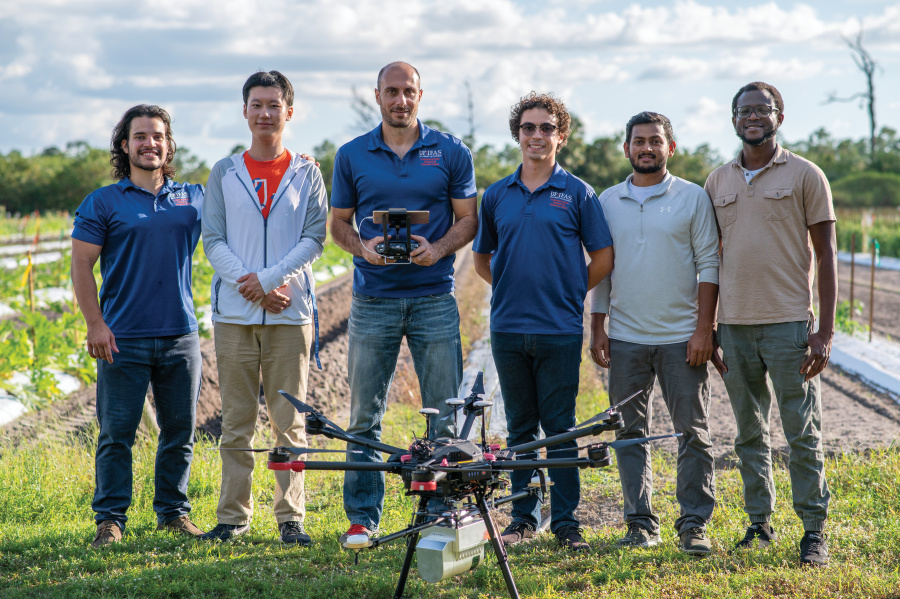
This new technology is fast on its way to eliminating the traditionally drawn-out process of manual data collection to determine soil or plant nutrients, insect pressure or even the extent of damage after a hurricane. This is important because it saves farmers time, which saves money, and it also cuts down on nutrient and pesticide use, another cost-saving measure.
“We now have access to immediate decision making,” says Dr. Scott Angle, senior vice president for agriculture and natural resources at UF/IFAS. “When traveling through a field, you have to make a decision in seconds. A human can’t do that, but AI can.”
See more: Blockchain Technology Advances Florida Agriculture and Improves Supply Chain
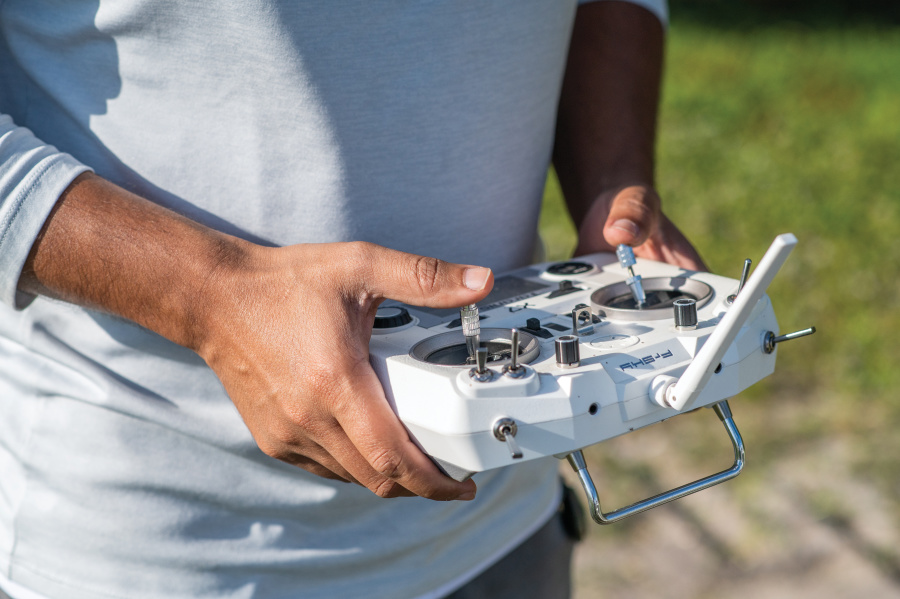
Labor Logistics
With labor shortages becoming increasingly common, specialty crop growers are telling state leaders that innovative technologies are critical for their operations – or else there won’t be a future.
“We will have to rely on robots in the future,” Angle says. “If not, the day is coming when we won’t have a strawberry harvest. It’s not if – it’s when.”
Finding farmworkers has been a crucial concern for the past decade as competition with Mexico continues to increase.
One tech-driven effort to decrease labor needs is Harvest CROO, a robotic strawberry harvester being developed by private industry with input from Ampatzidis. The harvester, which Ampatzidis describes as a “factory in the field,” uses AI to determine when berries are ripe, then picks them without damaging the plant. It can even work at night.
“It’s critical this is all very fast-paced for our growers. They have made that very clear,” says Dr. Jack Rechcigl, professor and director at the UF/IFAS Gulf Coast Research and Education Center (GCREC).
With the university’s new initiative on AI, growers see a glimmer of hope.
“They’re realizing AI is what it is going to take,” Rechcigl says.
Under Rechcigl’s leadership, there is a planned center for Applied AI in Agriculture in progress now at GCREC, which will focus on AI-based technologies for agriculture with an emphasis on moving technology from concept to commercialization.
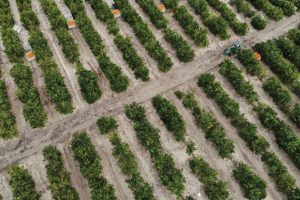
Environmental Bonus
Ampatzidis says Florida currently plays a major role in the fourth agricultural revolution. The development of machinery, chemicals and genetic engineering were first, second and third, respectively. The fourth takes robotics, data analytics and digital farming and puts them in the hands of the average farmer.
“AI can distinguish a weed from the crop and between different types of weeds. It sees and sprays,” Ampatzidis says.
This precision results in less impact on the environment as well as the farmer’s wallet.
See more: Large or Small, Florida Farms Take Pride in Their Products
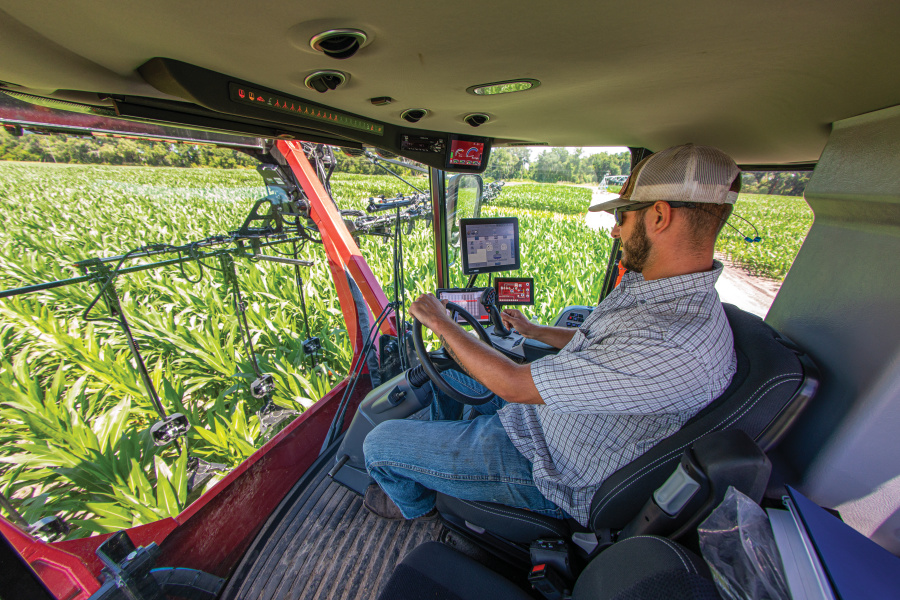
“This method eliminates the need to spray the entire field and can reduce herbicide use by almost 70%,” Angle says.
Thanks to an $80 million initiative, including a supercomputer donated in part by AI technology company NVIDIA, UF now has the largest concentration of AI hardware of any university in the world, according to Angle.
The initiative brings AI education, training and collaboration to all aspects of research at the university. He anticipates this is just the beginning of making this technology accessible.
For more information about advanced agriculture technologies, visit ifas.ufl.edu/artificial-intelligence.



